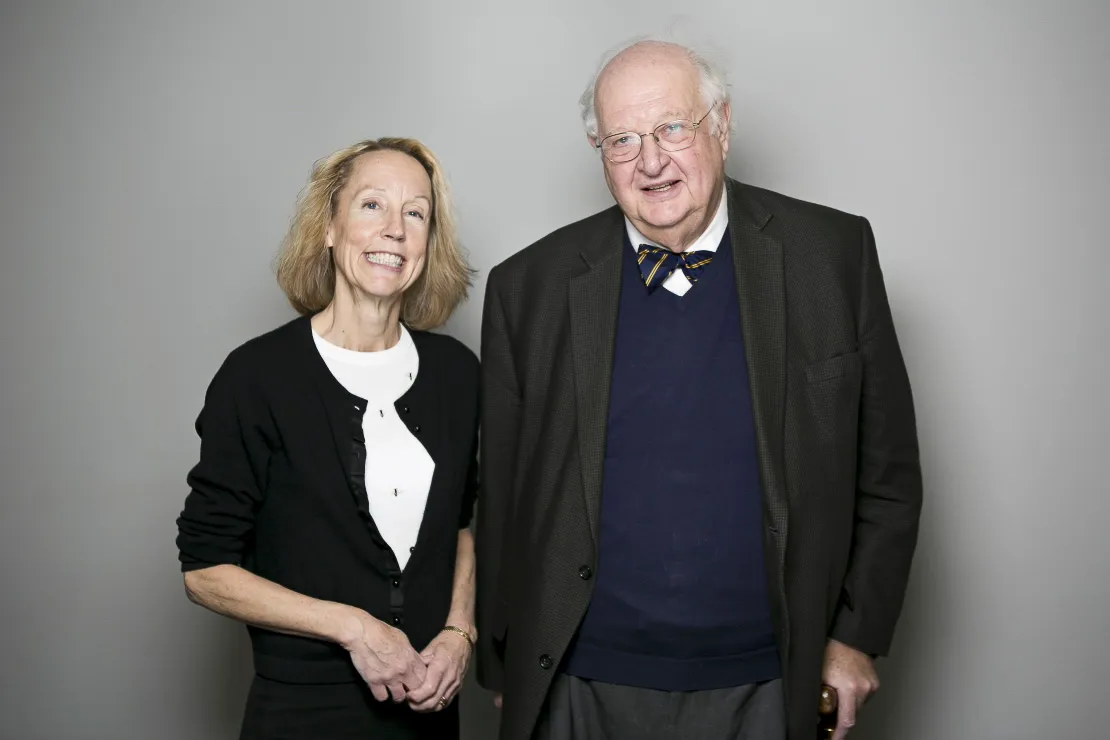Economist Anne Case and Nobel Laureate Angus Deaton, a husband-and-wife duo at Princeton, will discuss health epidemics caused by rising inequality in the United States this Wednesday, Thursday and Friday as part of the 2019 Tanner Lectures on Human Values.
Now both emeriti at Princeton, Case and Deaton are known for their 2015 study on increasing death rates in the white, working-class, middle-aged population due to drugs, alcohol and suicide — a term the couple coined “deaths of despair.” This phenomenon of an increased mortality rate in a developed Western country is unique among uneducated whites in America and is not seen in any other demographic groups, such as African-Americans or Hispanics.
“I’d tackle opioids for a start,” Deaton said in an interview with The Atlantic, referencing possible ways to solve the “deaths of despair” crisis. “People who die of opioid overdoses are not trying to kill themselves. It really is this business where if you relapse, you die. And that’s not true for alcohol or other things.”
The Tanner Lectures are held at nine universities across the United States and England, with the primary purpose of better understanding human behavior and human values. Created by the late American industrialist and philanthropist Obert Clark Tanner, the lectures aim to contribute to the “intellectual and moral life of mankind.” The McCoy Family Center for Ethics in Society at Stanford collaborates with the Office of the President to host the annual Tanner Lectures at Stanford.
Case, who is the director of Princeton’s Research Program in Development Studies, will give the first lecture, titled “Deaths of Despair,” on Wednesday at the Bechtel Conference Center in Encina Hall.
Her talk will address the data behind the increasing mortality rates of uneducated white people in the U.S., and compare the data to other statistics from Hispanic, African-American and European populations. Case’s lecture will be followed by a comment by Lisa Berkman, the director of the Harvard Center for Population and Development Studies.
Previously, Case has written extensively on health over the course of people’s lifespan. Her field of research includes labor economics, development studies and health economics. Linking together economic status and childhood health status, her work was honored with the Kenneth J. Arrow Award from the International Health Economics Association in 2003.
“We found that while most children are born into good health, children in poorer households are more likely to fall into worse health as they age,” Case said in an interview with the Federal Reserve Bank of Minneapolis. “They have more chronic conditions. Their chronic conditions aren’t addressed until they’re more severe. They spend more days in bed. They miss more school. They have more hospitalization episodes.”
Deaton, who is a senior scholar at Princeton’s Woodrow Wilson School of Public and International Affairs, will deliver the second lecture, titled “Deaths of Despair and the Future of Capitalism,” on Thursday, also at the Bechtel Conference Center in Encina Hall.
He will spotlight the wider social and economic forces contributing to deaths of white, middle-class males in the United States. Deaton’s lecture will be followed by a comment from Victor Fuchs, the Henry J. Kaiser, Jr., Professor of Economics and of Health Research and Policy, Emeritus, at Stanford.
In 2015, Deaton received the Nobel Memorial Prize in Economic Sciences for his analysis of consumption, welfare and poverty. He has authored five books, and has researched numerous topics, such as poverty, inequality, economic development, health and well-being. Deaton was awarded a knighthood by the Queen of England in 2016 for his “services to research in economics and international affairs.”
A discussion seminar with both Deaton and Case will take place on Friday, from 10 a.m. to 12 p.m. in the Wattis Room of the Littlefield Center.
Contact Tejas Athni at tathni ‘at’ stanford.edu.
